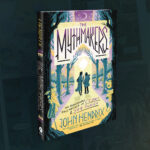The western genre does not let audiences forget about death. Whether by starvation or heatstroke, gun bullets or arrows, the harsh environs of the lawless frontier present constant reminders of mortality. This has been fodder for movie drama as long as cinema has existed, and The Ballad of Buster Scruggs (watch on Netflix) is just the latest example.
Written and directed by Oscar-winning filmmakers Joel and Ethan Coen—the latest “prestige” auteurs to bring their talents to streaming sites—Scruggs is a six-part anthology film about life and death (mostly death) in the Wild West. Each vignette is a standalone story with a different cast and plot, connected only by their setting (the American frontier in the late 19th century) and themes, which mostly concern the fragility of life and the universality of death.
As Netflix content goes, Scruggs is about as far from The Great British Baking Show as you can get. It’s a feel-bad film with a nihilistic bent (common in the narratives of the Coen brothers). But in a world where the reality of death is increasingly avoided or hidden from view, it’s also oddly sobering. Remembering death matters. Memento mori. But how we remember it matters too—and on this point Scruggs is a bit problematic.
Making Light of Death
The Coen brothers don’t shy away from death. Their films are rife with it: whether death by wood chipper (Fargo), captive bolt pistol (No Country For Old Men), hanging (True Grit), or heart attack (The Big Lebowski). Death in their films is indiscriminate. Sometimes the bad guys die, but often the good guys do too. A character’s guilt or “innocence” has no bearing on his fate; death and suffering come to everyone. All have sinned (Rom. 3:23) and the wages of sin is death (Rom. 6:23). In their 2009 film, A Serious Man, the Coen brothers invoke the Book of Job to explore these themes. One’s uprightness does not exempt him from the consequences (death) of the fall.
This is the big theme in The Ballad of Buster Scruggs, where at least one (but often many) characters die in each of the six stories. The unpredictability of death—who it comes to and when—combined with its certainty and ugliness in the Coen brothers’ world, creates thick tension. From the first chapter (“The Ballad of Buster Scruggs”) and its bloody duels and saloon showdowns, to the last (“The Mortal Remains”) and its stagecoach journey toward the afterlife, death is ever-present. Sometimes the deaths feel just (Chapter 2: “Near Algodones”) ,and sometimes they are decidedly unjust (Chapter 3: “Meal Ticket”). Sometimes they are just tragically random (Chapter 5: “The Gal Who Got Rattled”).
Some chapters feel like lighthearted comedy. Others have a gothic solemnity or an Edgar Allen Poe-esque morbidity. But all six treat death’s givenness with a sense of dark humor and detachment. This has long been a Coen brothers’ trademark, but here it feels especially disturbing. Should we really find humor in death? How can we? For the Coen brothers, it often seems like finding comedy in death and suffering is a way to cope with a world that feels meaningless and a God who is detached (if he exists at all). How do we make sense of the randomness and cruelty of death in this world? For the Coen brothers, we don’t. We simply observe it and let it frighten or humor us, depending on our mood.
Is Death Meaningless?
The cruelty of the American West—its unforgiving landscapes and amoral savagery—have long been fodder for movies making sense of humanity. Some westerns use the backdrop to essentially liken humans to animals. In a Darwinian world it is survival of the fittest, whether hawks and deer or cowboys and Indians. Westerns like The Revenant underscore this “kill or be killed” approach, rendering death’s meaning as simply the natural consequence of failing to survive.
Other westerns use the viciousness of the West to explore the complexity of morality. Though in former eras the hues of good and evil were more clear (think Shane), recent westerns have foregrounded shades of gray. From Unforgiven (1992) to The Proposition (2005) and this year’s excellent Hostiles, these westerns complicate the categories of good and evil, heroes and villains. In so doing they remind us, appropriately, of universal depravity and the necessity of redemption. None is righteous, no, not one (Rom. 3:11).
Complicating good and evil is one thing. Dispensing with the categories altogether is another.
But complicating good and evil is one thing. Dispensing with the categories altogether is another. Scruggs is barely interested in morality, perhaps because its view of death—utterly arbitrary, universal, and final—renders the actions of life meaningless. The final chapter makes fun of an uppity Christian lady’s insistence on two kinds of people (“upright and sinful”) and a moral system with consequences. Other chapters find laughs in popular notions of heaven and hell. If we all die, and there is nothing we can do about it, and if there is nothing beyond, what is the meaning of death? It has none. It is merely the “stop” to bookend a story’s “start,” an endless cycle of ephemeral stories with different characters but the same general plot: grow up, work, search for love, search for purpose, and die. The structure of Scruggs, as stories in a literal book with pages turning between chapters, underscores this view.
Meaning of Death
But death is not meaningless. There are ways we can, and should, remember death in meaningful ways. Recent films like the Emily Dickinson biopic A Quiet Passion (2017) and Three Billboards Outside of Ebbing, Missouri dwell on death in meaningful ways. Many films viscerally capture the unnatural sting of death, its trauma and its injustice.
Death is most meaningful when we see it in light of Christ. His death and resurrection redefine death, removing its sting, absorbing its unbearable trauma, imbuing it with hope.
Death is most meaningful when we see it in light of Christ.
This is not to say death is a happy thing. As Matt McCullough’s writes in his new book, Remember Death: The Surprising Path to Living Hope (Crossway/TGC, 2018):
If death is not a problem, Jesus won’t be much of a solution. The more deeply we feel death’s sting, the more consciously we will feel the gospel’s healing power. The more carefully we number our days, the more joyfully we’ll hear that death’s days are numbered too.
The Coen brothers are not wrong to dwell on death and its unavoidable universality. They are not wrong when they point out the humble, fragile realities of human life. But they are wrong to stop there, refusing the hope and meaning Christ offers us in our death-bound plight.
The story of this world, as the Coen brothers so eloquently articulate, may indeed be one of ever-present death, blood, and savagery. But there is another story, at times just as bloody and savage, that Scripture describes—for those who have ears to hear. McCullough puts it well:
If death tells us we’re not too important to die, the gospel tells us we’re so important that Christ died for us. And not because death’s message about us is wrong. It isn’t. On our own, we are dispensable. But joined to Christ, through our union with him, we are righteous, we are children of God, and God will not let us die any more than he left Jesus in the grave.
Try Before You Buy: FREE Sample of TGC’s New Advent Devotional

Choosing the right Advent daily devotional can be tough when there are so many options. We want to make it easier for you by giving you a FREE sample of TGC’s brand-new Advent devotional today.
Unto Us is designed to help you ponder the many meanings of this season. Written by TGC staff, it offers daily Scripture readings, reflections, and questions to ponder. We’ll send you a free sample of the first five days so you can try it out before purchasing it for yourself or your church.

































